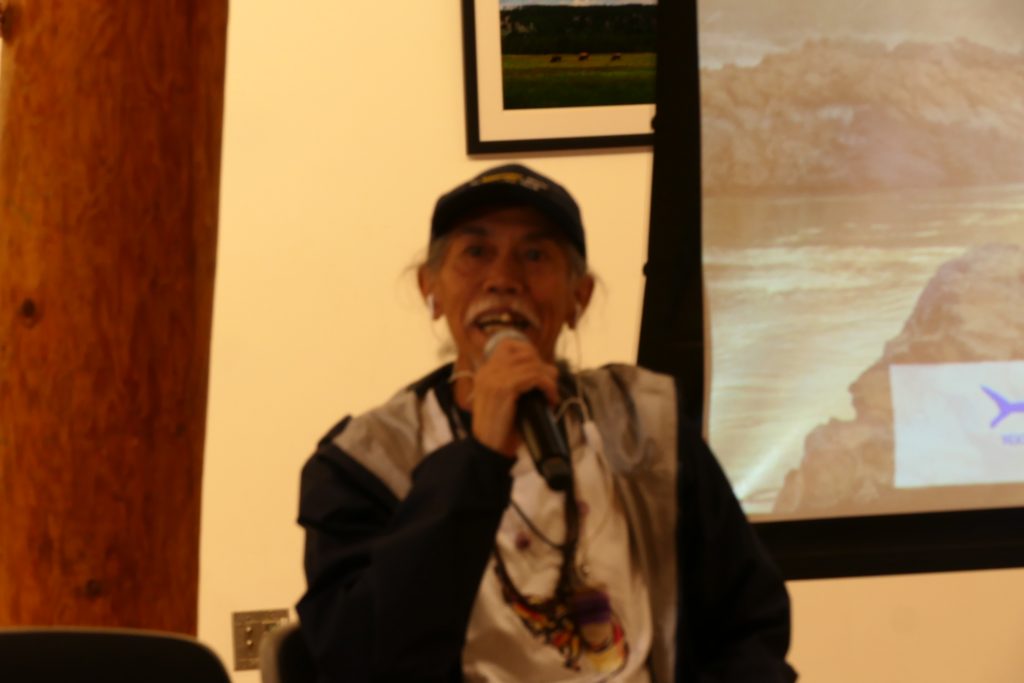“No matter which river you are, we are also children of the river.”

On October 14, 2023, according to Thailand Day, Mr. Niwat Roykaew, director of Mekong School and Lanna activist Traveled to America to receive the 2023 Chang-Lin Tien Distinguished Leadership Award from The Asia Foundation and participated in an international dialogue on rivers and people at Portland State University, Oregon, with Wilbur Slockish (Klickitat, Yakama), Julian F. MATTHEWS Board Member and Coordinator, Nimiipuu, Nez Perce and David Sohappy, Jr. Yakama, which is the offspring of salmon Native American
This discussion was attended by the Mekong River youth group via online channels. Online participants came from a diverse range of Groups of people who live along the river basin and groups of people who do not live along the river basin. The panel discussion discussed with Native Americans on the Columbia River their experiences with Develop the Columbia and Mekong Rivers

Before the discussion began, there was a religious ceremony based on traditional beliefs. The ritual cannot be broadcast online, so online participants do not know how the ritual is performed. But after the ceremony was over, it was explained that doing the ritual was to increase auspiciousness for the participants in this discussion.
The discussion began with Mr. Niwat Roykaew, a representative from the Mekong river people. Mr. Niwat Roikaew represented himself as a child of the river. They also said “No matter which river you are, we are also children of the river,” and told about the way of life of the people along the Mekong River. who have relied on the Mekong River for their daily lives from the past to the present. Mekong water is a source of food. as a source of income, It is a source of culture. But now what is happening to the Columbia River is happening to the Mekong River with this so-called dam, which is destroying the richness of the Mekong River. And dams are destroying Columbian salmon in the Columbia River. And now the Mekong River is being destroyed by dams. These important things that nature has provided are about to be destroyed.

Building a dam destroys the rich ecosystem of the river. Like the Columbia River, Columbia River people have relied on the Columbia River for their livelihoods from ancient times to the present. They respect what nature has done for them and feel a sense of pride in living with the river. But the construction of the dam has had an impact. causing trouble to our ancestors and them for a long time Suffering from the construction of the dam but the government did not come to compensate them and they had to evacuate because of the flooding. Columbia River residents have lost their homes. lost their cemetery. The river is getting hotter. There is a problem of decreasing fish species. and lost salmon.
Salmon is a fish that has a long history with the inhabitants of the Columbia River. It is an important protein food. But the construction of the dam has blocked the path of the fish. Representatives from Colombia shared their experiences fighting to protect their rivers. They call themselves the Salmon People. Colombian representatives also said they will not give up if the sun continues to rise. They have to fight even though the government claims various benefits. For Colombians to stay and not fight. But they view these promises from the government as empty promises and they must continue to fight. Even though their generation was unable to stop the construction of dams, what we learned from our brothers and sisters in Columbia was to “Never give up.”

It can be seen that the construction of dams has destroyed the ecosystem of water resources. destroying the way of life of the river basin people and destroying the future of our children and grandchildren. Hope that the struggle of the people of the Mekong and Columbia rivers will not be wasted because the quality of water or rivers is life.

